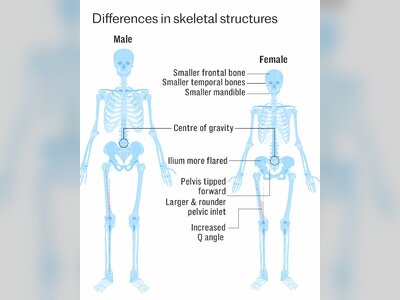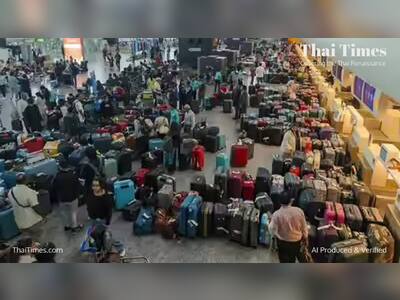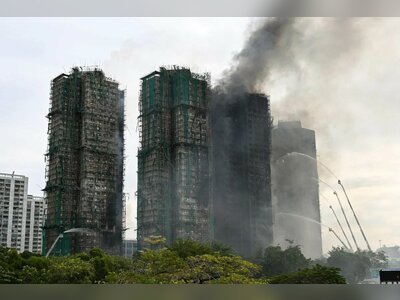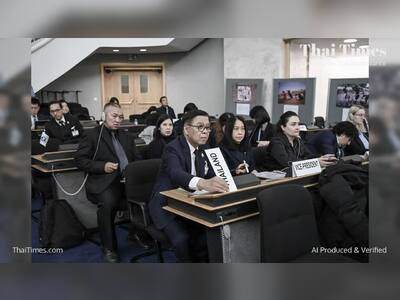South Korea's Political Crossroads: Between Authority and Accountability
As President Yoon Suk Yeol's controversial martial law declaration sparks debate, South Korea grapples with profound democratic dilemmas.
In an unexpected twist of South Korean politics, the leader of the ruling party has suggested suspending President Yoon Suk Yeol, whose abrupt declaration and subsequent retraction of martial law have raised serious concerns about the nation's democratic fabric.
This unfolding drama presents a piercing question: is this a necessary check on executive excess, or an overreach potentially destabilizing the political order?
The President's fleeting move to impose such an extreme measure as martial law undoubtedly merits scrutiny.
Yet, the prospect of suspension and impeachment is a heavy-handed tool, not to be wielded lightly.
The echoes of past political upheavals, particularly the 2016 impeachment of Park Geun-hye, offer sobering lessons on the potential for national discord.
These historical parallels are particularly daunting given the region's tense geopolitical environment, especially with North Korea as a constant undercurrent of tension.
Han Dong-hoon, the party leader advocating for the President's suspension, claims to possess evidence pointing to possible authoritarian tendencies, including orders for the special forces to physically remove lawmakers.
Such claims, if substantiated, indeed sound an alarm for democratic governance and stability.
The importance of curbing power excesses cannot be overstated, yet the radical ramifications of partially dismantling a presidency necessitate caution.
Within the political ecosystem, matters become more complex as some ruling party members align with opposition calls for accountability.
This signals a broader, nonpartisan demand for responsible governance, reflecting citizens' increased vigilance towards threats to their democratic institutions.
However, prudence advocates for a methodical investigation into Yoon's actions rather than swift moves towards impeachment.
Hastiness could pave the way for unintended consequences, potentially destabilizing the nation's stable yet delicate political structure.
The emergence of authoritarian characteristics in leadership challenges the very bedrock of democratic systems.
While it's crucial to address power overreaches, this must be balanced against the risk of eroding governmental stability.
As South Korea navigates its internal challenges, the global community witnesses a pivotal moment in democratic accountability.
Liberal democracies worldwide might take this as a cue for broader introspection: how should power and accountability be balanced to preserve the integrity of democratic governance effectively?
In this delicate dance of democracy, whatever path South Korea elects to follow will undoubtedly influence governance approaches on a worldwide scale, reminding all of the intricate scales upon which authority and accountability must be balanced.
This unfolding drama presents a piercing question: is this a necessary check on executive excess, or an overreach potentially destabilizing the political order?
The President's fleeting move to impose such an extreme measure as martial law undoubtedly merits scrutiny.
Yet, the prospect of suspension and impeachment is a heavy-handed tool, not to be wielded lightly.
The echoes of past political upheavals, particularly the 2016 impeachment of Park Geun-hye, offer sobering lessons on the potential for national discord.
These historical parallels are particularly daunting given the region's tense geopolitical environment, especially with North Korea as a constant undercurrent of tension.
Han Dong-hoon, the party leader advocating for the President's suspension, claims to possess evidence pointing to possible authoritarian tendencies, including orders for the special forces to physically remove lawmakers.
Such claims, if substantiated, indeed sound an alarm for democratic governance and stability.
The importance of curbing power excesses cannot be overstated, yet the radical ramifications of partially dismantling a presidency necessitate caution.
Within the political ecosystem, matters become more complex as some ruling party members align with opposition calls for accountability.
This signals a broader, nonpartisan demand for responsible governance, reflecting citizens' increased vigilance towards threats to their democratic institutions.
However, prudence advocates for a methodical investigation into Yoon's actions rather than swift moves towards impeachment.
Hastiness could pave the way for unintended consequences, potentially destabilizing the nation's stable yet delicate political structure.
The emergence of authoritarian characteristics in leadership challenges the very bedrock of democratic systems.
While it's crucial to address power overreaches, this must be balanced against the risk of eroding governmental stability.
As South Korea navigates its internal challenges, the global community witnesses a pivotal moment in democratic accountability.
Liberal democracies worldwide might take this as a cue for broader introspection: how should power and accountability be balanced to preserve the integrity of democratic governance effectively?
In this delicate dance of democracy, whatever path South Korea elects to follow will undoubtedly influence governance approaches on a worldwide scale, reminding all of the intricate scales upon which authority and accountability must be balanced.











